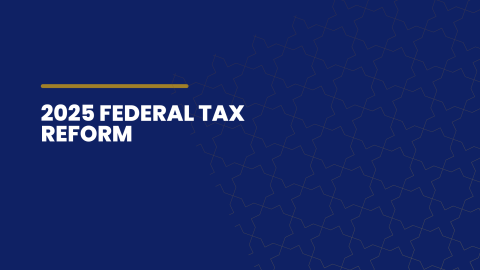
All economic policy signals point to comprehensive federal reform legislation in 2025. Starting in the first quarter of 2025, the 119th Congress will be faced with a “tsunami” of budget and tax policy issues. Unlike the current Congress, which decided to kick the tax and spending cans down the road, the next Congress will have no alternative but to act.
In March, President Biden sent to Congress a fiscal year 2025 budget that proposes to increase taxes by nearly $5 trillion for corporations and for individuals with incomes above $400,000. Many of the president’s tax proposals -- including a proposal to increase the corporate tax rate to 28% and impose a 25% minimum tax on certain high-income individuals – were included in President Biden’s previous budgets. New tax proposals in the FY 2025 budget include measures to increase the recently enacted corporate alternative minimum tax rate from 15% to 21% and to deny business deductions for employee compensation above $1 million.
On Taxes: 87 major provisions of the Tax Cut and Jobs Act of 2017 — the main legislative accomplishment of Trump’s presidency — expire at the end of 2025. That means that, absent action, tax rates will rise, and the standard deduction and the child credit will shrink. Businesses will lose some tax breaks. There will also be automatic tax cuts: The deduction for state and local taxes will expand for high earners, as will the mortgage deduction for people who buy expensive homes. The personal and dependent exemptions, eliminated by the 2017 law, will come back. But the tax increases will be larger than the cuts.
On Spending: An expansion of health-care programs that President Biden signed into law will expire in 2025, and the federal government will hit the debt limit May of 2025.





















